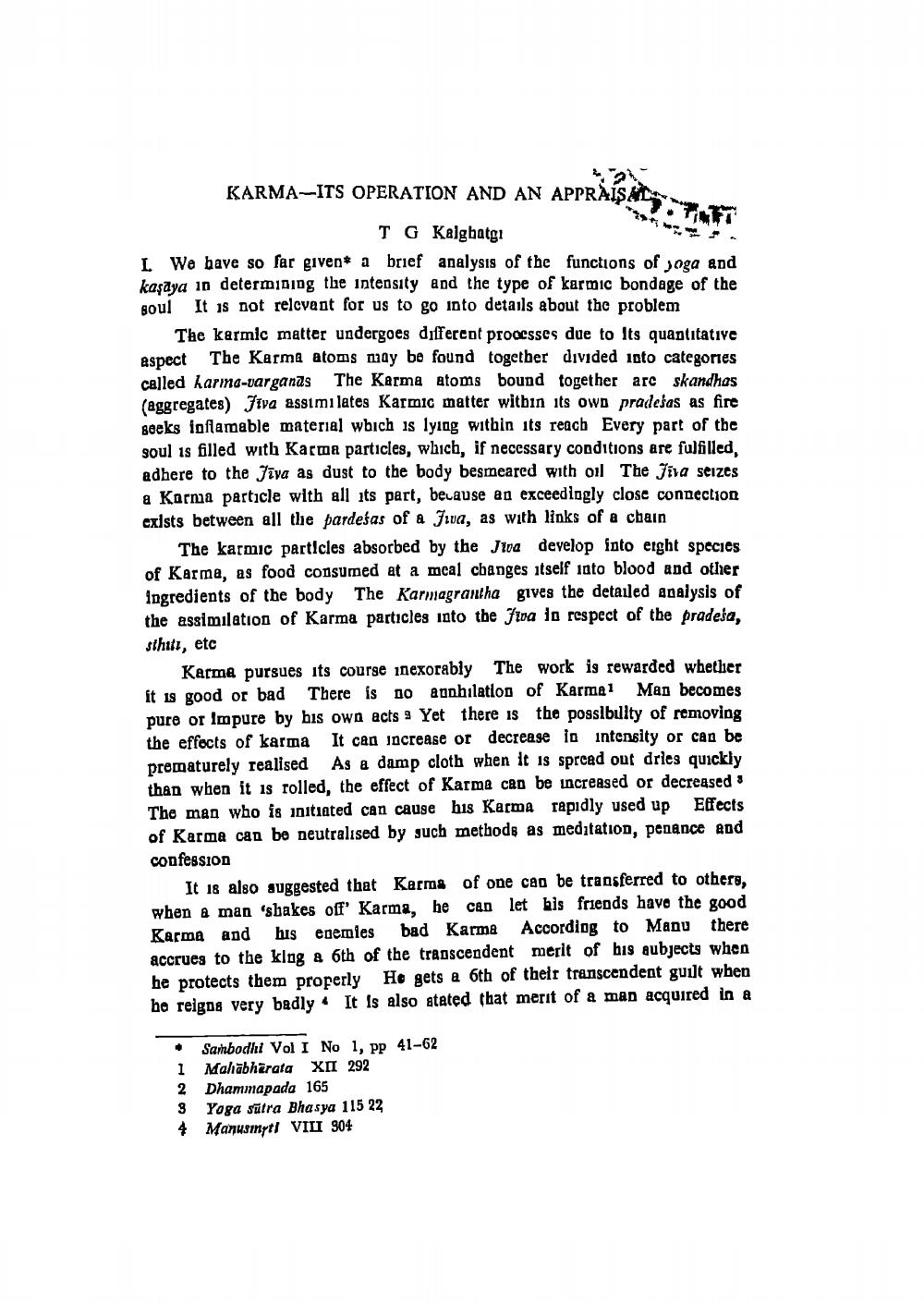________________
OPRAIS
. 7,
KARMA-ITS OPERATION AND AN APPRAISE
TG Kalgbatgi L. We have so far given a brief analysis of the functions of yoga and kaşaya in determining the intensity and the type of karmic bondage of the gou! It is not relevant for us to go into details about the problem
The karmic matter undergoes different processes due to its quantitative aspect The Karma atoms may be found together divided into categories called harma-varganas The Karma atoms bound together arc skandhas (aggregates) Jiva assimilates Karmic matter within its own pradešas as fire seeks inflamable material which is lying within its reach Every part of the soul is filled with Karma particles, which, if necessary conditions are fulfilled, adhere to the Jīva as dust to the body besmeared with oil The Jiva seizes a Karma particle with all its part, because an exceedingly close connection exists between all the pardeśas of a Jwa, as with links of a chain
The karmic particles absorbed by the Jiva develop into erght species of Karma, as food consumed at a mcal changes itself into blood and other ingredients of the body The Karmagrantha gives the detailed analysis of the assimilation of Karma particles into the fiva do respect of the pradesa, sthiti, etc
Karme pursues its course inexorably The work is rewarded whether it is good or bad There is no aunhilation of Karma1 Man becomes pure or Impure by his own acts 9 Yet there is the possibility of removing the effects of karma It can increase or decrease in intensity or can be prematurely realised As a damp cloth when it is spread out dries quickly than when it is rolled, the effect of Karma can be increased or decreased : The man who is initiated can cause bis Karma rapidly used up Effects of Karma can be neutralised by guch methods as meditation, penance and confession
It is also suggested that Karms of one can be transferred to others, when a man 'shakes off' Karma, he can let his friends have the good Karma and his enemies bad Karma Accordiog to Manu there accrues to the king a 6th of the transcendent merit of bis aubjects when he protects them properly He gets a 6th of their transcendent guilt when he reigns very badly. It is also stated that merit of a man acquired in a
2 3 4
Sambodhi Vol I No 1, pp 41-62 Mahabharata XII 292 Dhammapada 165 Yoga Sutra Bhasya 115 22 Manusmyt! VILI 904




